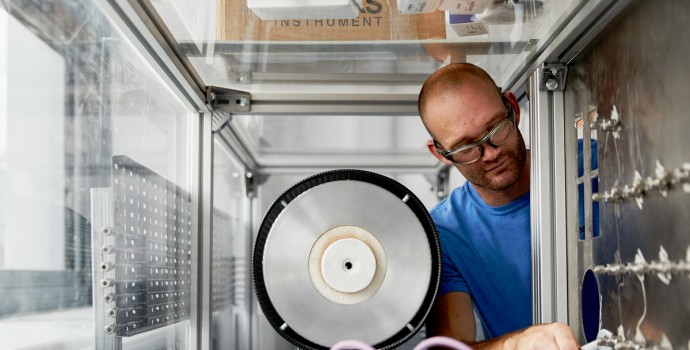
Information and Communications
Discover your research degree study options and areas of expertise for our academic supervisors — including libraries and media.
Why you should join us
Our research degrees will help you advance or change your career, deepen your expertise, and expand your research and practical skills.
Our research areas
Discover our areas of expertise and browse our experts. We encourage you to discuss your research ideas with us – even if your topic is not listed.
- The changing role of libraries in a digital age, including societal contribution and innovation
- Digital ethnography, humanities, cultures, and heritage
- Digital information environments, including e-books and virtual learning environments
- Digital marketing
- Information and knowledge management
- Information search behaviour, and interactive search and retrieval systems
- Interactions between humans and technology, including information design and user experience (UX)
- New media and communications technologies
- Relationships between digital media, technology and social identities, including race, gender and sexuality
- Social media, web, and mobile technologies
Qualifications you can study
You can do a research degree on campus or remotely through distance learning. Choose from one of these programmes:
- PhD Information and Communications — three years full-time, six years part-time
- PhD Linguistics — three years full-time, six years part-time
- MPhil Information and Communications — 18 months full-time, 36 months part-time
Find out about the research degrees we offer.
Start dates
Most of our postgraduate researchers enrol in October. You can also join us in January and April.
Application information
Entry requirements
To apply, you’ll need a first or 2.1 honours degree, or an equivalent qualification.
International postgraduate researchers must have strong English language skills.
We welcome applicants from non-standard backgrounds. We’ll take subject knowledge, professional experience, publications, or other relevant achievements into consideration.
Find out more about our standard entry requirements.
Scholarships, fees and funding
Contact information
Contact us
About this subject
For an initial discussion, contact Dr Marijana Macis, the research degrees co-ordinator for information and communications at m.m.macis@mmu.ac.uk.
General admissions
For further information on the application process, contact the admissions team at pgradmissions@mmu.ac.uk.


